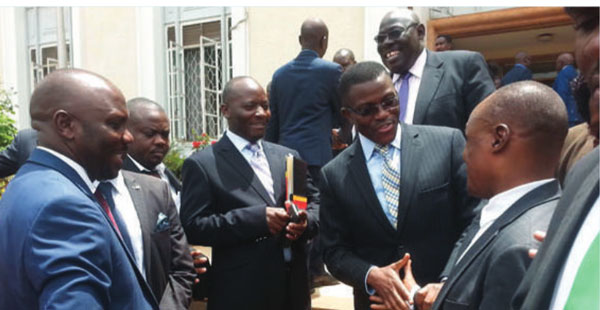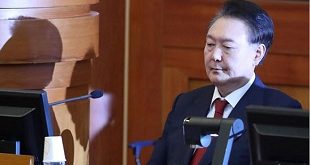
Why Ugandans need to build social cohesion in order to craft a national identity and build a nation
COMMENT | Reagan Wamajji | Recently, I had the pleasure of interacting with individuals on a rather interesting topic; Social cohesion; crafting a national identity and nation building. I had never taken any interest to interrogate whether Uganda the republic is state or a nation or how our cohesion or lack thereof affects our everyday lives and the kind of development that as a country we (or should) aspire for.
Social Cohesion can be seen as a system that allows society to work together towards the wellbeing of all its members, fights exclusion and marginalisation and creates a sense of belonging and promotes trust, where there is inclusion in communities and society at large, and with mutual solidarity finding expression among individuals and communities.
To be able to have a conversation on social cohesion, one must first acknowledge that Uganda is a highly diverse country. The diversity is along cultural, religious, ethnic, regions, and class systems. The diversity without unity has created tiny disintegrations making it rather hard to build Uganda into a nation with a common sense of national belonging that appreciates every Ugandan and works towards the aspirations and goals of each individual.
The absence of national cohesion undermines efforts for national consensus on socio-economic and development agendas. As a diverse and disunited country comprised of so many different cultural and ethnic identities, which were all conscripted to form a republic, it is an uphill task to build a sense of national identity and nation. And yet it is critical to unite for the betterment of society, progress, and development,
Historically, Uganda was not formed around social economic or political formations, but rather it was created around the economic interests of the imperial powers then, especially, dividing the landmarks, raw materials, and geographic vintage points. In effect many diverse communities were put together under a republic and there has been no deliberate effort since then to build a cohesive nation with shared values and aspirations.
In pre-colonial times, we had societies that were formed around clans, chiefdoms and kingdoms and lived more cohesively, because they had a common unifying factor or creed. The advent of colonialism disintegrated these societies for easier conquest. In the post- independence era, there were some efforts at unifying Uganda as a republic. Many tools to foster cohesion were put in the laws as the government focused on building the structures of the state. But few government programs were put in place to integrate Uganda in the new sets of values and beliefs.
The absence of a national language has made cohesion more taxing to promote and further perpetuating the divide. Sure there were some government policies that were structured to build a more cohesive nation. In the 70s, for instance, the ministry of Education ensured that the selection for students joining higher education was premised on regional sharing where students in one region would have to study in another region. This built a caliber of Ugandans who appreciated the diversity of our country.
Most definitively though, war and conflict which have punctuated our turbulent history divided the country even further because they were organised around regional and ethnic dimensions. The conflicts between Milton Obote, and Buganda, massive uprising of the NRA (South verses the North), and the LRA have been pivotal.
Perhaps the biggest challenge that we face today is inequality. Capitalism has contributed in developing a country of the haves and the have not’s. There is an apparent class system that has been built around wealth and control of factors of production. At the top of the food chain are the super elite, then the middle class and at the bottom are the ordinary poor folks. A further scrutiny of these classes reveals the ugly reality that the class system is based on regions and ethnicities, with some regions dominating a certain class. This article will not interrogate these clusters but recognises that these divisions disintegrate whatever cohesion exists in society, while at the same time building new ones based on wealth and providence. The rapid emergence of these social classes and conditions where extreme poverty lives next door to extreme wealth have fueled the divide even further.
For sustainable development and equitable distribution of resources, social cohesion is a necessity. The historical backgrounds and the current political dispensations, and the diversity we have, with limited resources, it is important to have deliberate government programs for cohesion, to guarantee sustained, peace, stability, and development.
Ordinarily, cohesion is usually built organically, with people naturally coalescing around similar interests and identities. Peace, stability, and development can be uniting factors for Uganda, but these have to be sustained and distributed across the board.
Therefore, social cohesion should be engineered by deliberate government programs and policies. The starting point for Uganda is the establishment of a national creed or common purpose that the country, as a whole country, identifies with. The absence of a unifying goal, escalation of inequality among both individuals and regions, and the toxic political system make it difficult to build a cohesive nation. It is possible, but the process is long and challenging. A simple starting point for the government, for instance, is to forge a national language and build infrastructure that opens up all of Uganda, and connecting people, using technology to break barriers in time and space. Unless people interact with one another, we cannot have social cohesion and without it, we cannot have nation building and a national identity.
All in all we need to recognize and accept that we are a diverse country but disunited and we need to build a more cohesive nation, where inequalities, exclusions and disparities based on ethnicity, gender, class, regions which engender divisions distrust and conflict are reduced in a deliberate and sustained manner. This, with community members and citizens as active participants, working together for the attainment of shared goals, designed and agreed upon to improve the living conditions for all.
****
Reagan Wamajji works with the Centre for Policy Analysis in Kampala
 The Independent Uganda: You get the Truth we Pay the Price
The Independent Uganda: You get the Truth we Pay the Price




Reagan, under normal circumstances, I would have welcomed the station of this article. But just like many, there is the sense that this article is seeking for more of “political correctness” rather than the realty that is obtaining. It clinically sweeps the underlying issues under the rug as to why Uganda is not a “nation state.” The reasons are well known to you and thus the avoidance. Some of us who have taken the risk to highlight these issues have been branded as: egocentrics, chauvinists, tribalists, separatists and the adjectives are infinite. For a stable and progressive “Uganda” there is need to come at the “centre” and resolve the “Buganda question.” This might have a “bitter taste” to it but it remains the main single fact. Let’s give a “listening ear” to Buganda maybe it will in return give a “fighting chance” to Uganda.